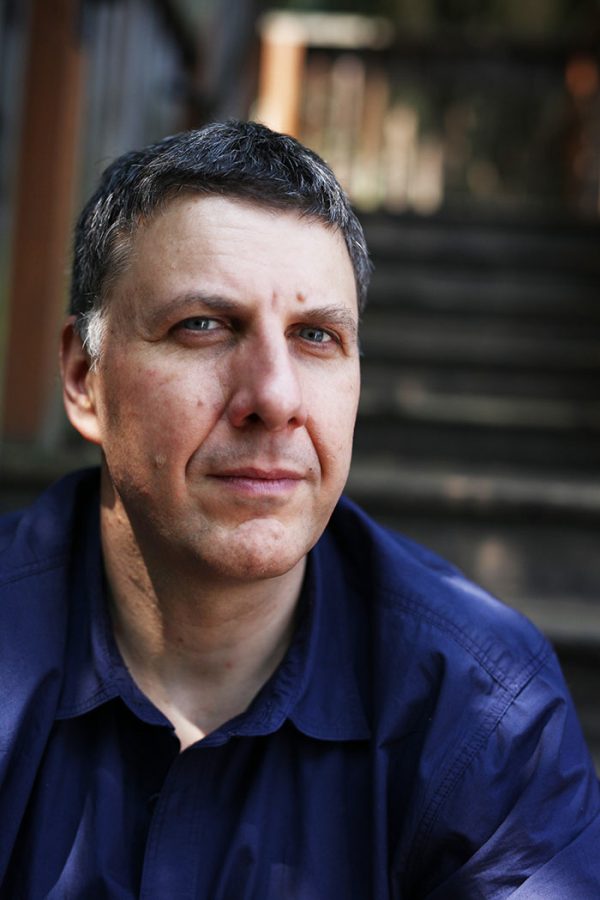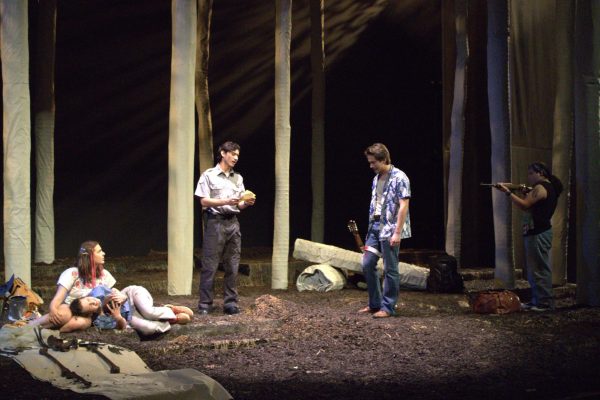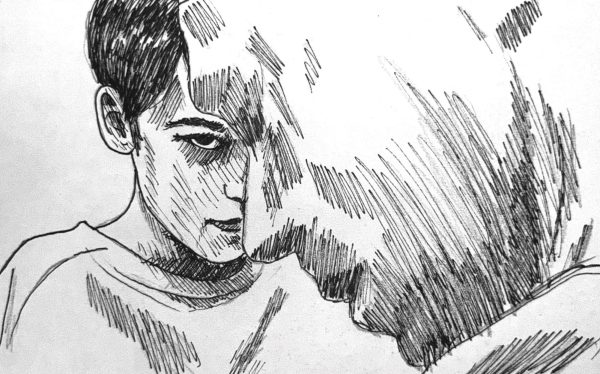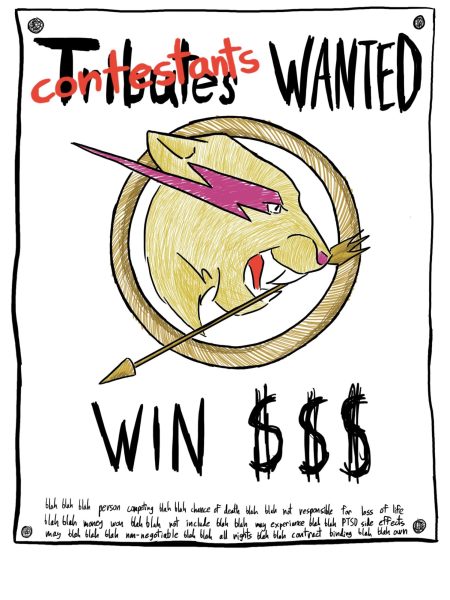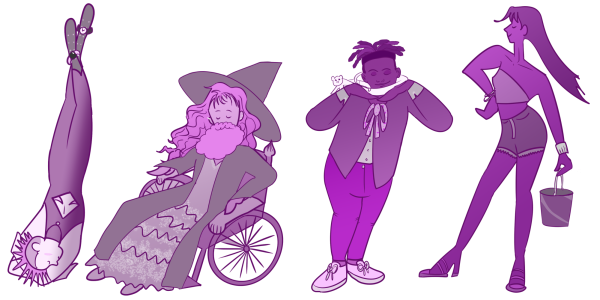National Poetry Month: Celebrating storytelling
Festivities make their way to San Antonio this April
As the city begins to welcome the arrival of spring with its fresh beginnings and new growths, celebrations in honor of National Poetry Month commence. With a vibrant and diverse community of poets in and around campus, this month-long celebration will serve as a strong tribute to the art of poetry.
This annual observance of poetry was established by the Academy of American Poets in collaboration with teachers, poets, booksellers and others to encourage poetry readership. There are several ways for anyone to get involved in this month-long event, from the avid reader to the curious novice. As one of the largest literary celebrations, National Poetry Month offers many events, activities and resources for those interested.
Caroline Wolff, senior communication major and creative writing, linguistics and English triple-minor, is a strong advocate for increased participation in the poetry community. Wolff is a passionate supporter of promoting participation in the poetry community. She believes that April is an excellent time for individuals who may not typically engage with poetry to explore the art form. It’s an opportunity to establish a sense of community and enable poets worldwide to exchange ideas and experiences with one another.
“This year, I plan to celebrate by attending various readings and slams in the San Antonio area, both to perform and to support. Every year, I also try to write a poem — or at least some lines — every day, usually following a daily prompt list,” Wolff said. “I’ve never completed a full poem-a-day challenge, but it’s always been a goal of mine, and maybe 2023 will finally be my year. I will also, undoubtedly, be reading a ton of poetry collections to keep me feeling inspired.”
For those interested in exploring but unsure how to get involved, there are various options available. Grace Webber, first-year accounting major, echoed this sentiment by emphasizing that the events this month provide an ideal space for anyone to engage.
“Before attending my first reading, I didn’t really know what to expect. There was a lot of advertisement for National Poetry Month at my high school and I thought I would just give it a chance,” Webber said. “That experience definitely opened me up to keep exploring poetry and events, so I’m excited to see what this April has to offer.”
In addition to attending events, there are plenty of other ways to celebrate. Many organizations, universities and libraries will be hosting events with similar goals of bringing people together with poetry. Trinity’s literary magazine, The Trinity Review, will be hosting an open mic event in the Humanities Collective Foyer on Tuesday, April 18. The following day, Professor Browne will host a more formal reading in the Dicke Hall screening room where her poetry students will share their work. Additionally, off-campus, local writing arts center Gemini Ink is hosting several slams and talks throughout the month.
Macks Cook, senior English major and creative writing minor, shares that National Poetry Month is a great time for anyone not already familiar or involved with poetry to do so through the upcoming events.
“This month is a great time to celebrate the poets in your life, as much as it is also about reading and writing your poems,” Cook said. “I certainly wouldn’t have kept writing and kept calling myself a ‘poet’ if I didn’t have a fantastic community of family, friends and mentors advocating for me and my work. … Telling your friend you read their latest publication or cheering a loved one on at an open mic means so much — so do it! Tell a poet you love them today.”
During National Poetry Month, the focus is not only on the written word but also on the spoken word. Various events and activities are designed to highlight the oral traditions of poetry, providing a platform for people to share their work and connect interactively with others. Wolff shared her experience of attending an open mic event in the past and her experience with the transformative power of spoken poetry.
“These people would go up to the mic and any shred of apprehension they were carrying would just melt away. You could see it in their faces and their posture and hear it in their intonation. They would just speak their truth, and the whole room would listen like it was the most important thing they had ever heard,” Wolff said. “People in the crowd would cheer and clap and stomp their feet until the whole room was alive with noise. It was the most adamant display of support I had ever seen, just a bunch of strangers lifting each other up.”

